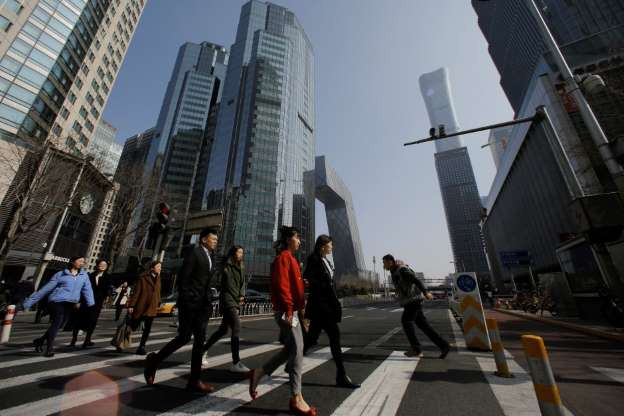Though there was a slowdown in some sectors like manufacturing and consumption, the Chinese economy indicated resiliency by performing within a reasonable range in July brought about by steady fixed-assets investment coupled with robust exports growth.
Defying popular expectations of doom, the Chinese economy's upward momentum is well into withstanding external pressure.
The National Bureau of Statistics (NBS) released data indicating this on Wednesday with Liu Aihua, spokesperson of the National Bureau of Statistics (NBS) saying that even with challenges, China's economy "continued to operate within a reasonable range with a steady upward momentum in July."
The industrial output had a 4.8 percent growth year-on-year in July though this was 1.5 percent lower than that of June.
The first seven months of 2019 saw high-tech industries outpacing the overall industrial sector both in investment and output with a 6.6 percent growth year-on-year in July.
High-tech manufacturing investment surged 11.1 percent year-on-year with a 5.4 percentage points higher than the growth in total-fixed asset investment.
Consumer goods' retail sales rose 7.6 percent on a yearly basis to 3.3 trillion yuan ($471 billion) though down from the growth of 9.8 percent in June.
Liu attributed the weak growth of retail sales to the slower automobiles sales in July because of China's new emissions standards coming into effect that same month.
In the services sector, the NBS data showed that though there was an increase with 6.3 percent year-on-year in July, this is down from the 7.1 percent growth in June.
From January to July, fixed-asset investments grew by 5.7 percent though down by 0.1 percentage points from January to June.
According to the Ministry of Commerce, foreign direct investment (FDI) was at 7.3 percent year-on-year during the first seven months of 2019. FDI in July increased to 8.7 percent year-on-year up from 8.5 percent of June.
Exports were also high at 10.3 percent growth, going up by 4.3 percentage points from the previous month.
Tian Yun, vice director of the Beijing Economic Operation Association said that "the advantages of private sector imports are showing up" and "pointing toward the internal momentum of China's economic growth."
Employment in China in July remained generally stable with 8.67 million new jobs hitting 79 percent of the country's annual target. This is with a 0.2 percentage points increase from June.
The consumer trend index showing perceptions on personal finance and local job prospects was at a high of 115 points according to global measurement and data analytics company Nielsen.
Justin Sargent, president of Nielsen China noted that the power of the economy has been enhanced by having the economic structure "continuously optimized" leading not only to resiliency and vitality but also to long-term stable development."
The proof is China's new industries having new forms and business models, which are the new growth drivers.
When it comes to inflation, the Consumer Price Index shows it was stable in July at 2.8 percent growth compared to that of 2.7 percent in June.
Addressing the external pressure, Liu said China will strengthen innovation, promote stable economic development measures, implement stabilizing policies and inject market vitality.
A statement released at the end of July after the meeting held by the Political Bureau of the Communist Party of China Central Committee with regards to China's economy facing new risks, the bureau said the country should focus on tong-term trends and key issues, thereby turning crises into opportunities.
Likewise, the statement said China will continue to implement prudent monetary policy and proactive fiscal policy including cutting taxes and fees.





